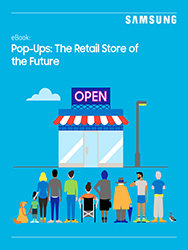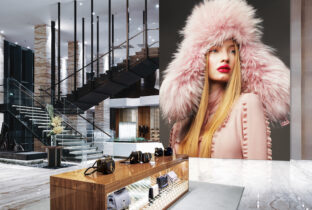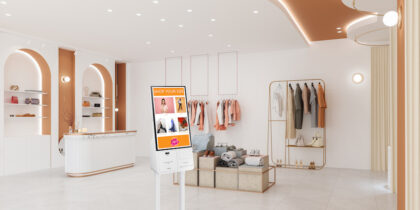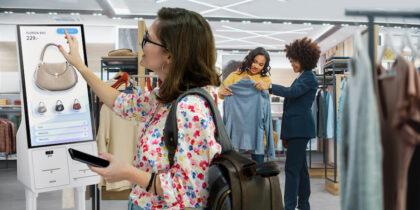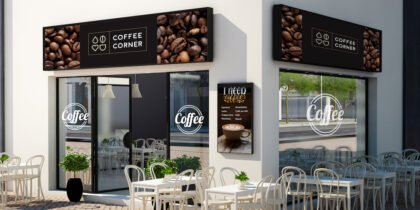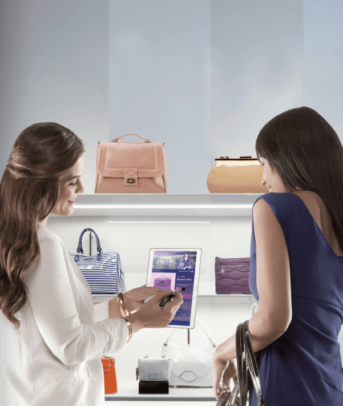A pop-up store offers retailers the opportunity to open additional storefronts, test new concepts and reinvent their in-store experiences in a flexible manner.
Pop-up stores can range from carts in department stores to stand-alone locations in a temporary retail space. By incorporating new technologies in the pop-up store solutions, retailers can learn more about their customers and push custom digital content to appeal to their needs. Since they don’t require the long-term commitment and financial investment of a traditional store, a pop-up store serves as a great testing ground for digital initiatives to enhance the retail experience.
Using In-Store Technology to Create a Custom Digital Experience
Pop-up store technology can help create an “undercover lab” for retail brands to offer “try and buy” experiences, learn more about consumers, their interests, and how they move about a store, explains Ian Hutchinson, Samsung business development for retail. Pop-up store technology offers the opportunity to bring custom digital marketing to the physical space with content that is geared towards individual shoppers.
“The real conversation is about using the technology to create the media experiences you want to show,” says Hutchinson.
A digitally optimized pop-up store should have compatible devices that can work collaboratively to gather data, respond to it and push that customized content. Some of the most important elements include:
Digital Signage
Digital signage is the backbone of pop-up stores, and offers a prime opportunity for retailers to reach their market with compelling and customized content. Large-format displays, stretch displays and video walls can engage consumers with lifelike content. For apparel retailers, mirror displays such as Samsung’s ML55E Digital Mirror Display can add an interact element to enhance the product selection and sales process.
Tablets
Enterprise-grade tablets can serve as self-service kiosks where consumers can learn more about products, sign up for offers or place orders. Samsung Galaxy tablets can easily be equipped with apps aftermarket enclosures to serve as a fully functional, company kiosk.
Take Your Store to the Next Level
Discover how connected pop-ups can help you drive successful retail initiatives. Download Now
Tablets can also be used by associates to actively engage consumers in the pop-up, and can serve as a compact POS device when equipped with the right software and peripherals.
Sensing Technology
Retailers learn more about foot traffic patterns by gathering data about how consumers enter a space and how long they stay there. New cameras and facial recognition sensors can now even identify shoppers by gender, race and other demographic variables, enabling them to trigger customized content. Real-time data collected through these sensors can also help close the data gap within the retail vertical.
“You can have media that is shown on the display change based on what the cameras are seeing. It offers the ability to market individually in physical retail,” Hutchinson says.
Software
One of the most important elements of a pop-up store is an IoT dashboard. A robust solution can capture store data from all devices, process that data and offer real-time analytics and insights into store activity. An intuitive and easy-to-read dashboard can transmit that data to tablets for associates to better serve shoppers.
Eliminating Pain Points with a One-Stop Solution
Because there are so many moving pieces, retailers often face challenges in establishing pop-up shops. Common pain points include site selection, ideation, identifying the right equipment and solutions, and set up and tear down. The typical path of creating a pop-up can be expensive and take more than six months from design to open, Hutchinson says.
One of the simplest and most effective paths to a pop-up shop is with a standalone experience and turnkey solution.
Samsung Connected Spaces is a solution that will enable retailers and brands to affordably and easily implement short-term retail spaces. It is a turnkey model that covers all the elements of a successful pop-up, including location scouting, ideation, logistics, point-of-sale and fulfillment. The system is a collaboration between Samsung, global marketing agency VML and retail design firm Barrows.
Incorporating Samsung’s smart, connected retail technologies can enable brands to gain insight into customer engagement, drive personalized messages and close the data gap. The marketing expertise of VML and fixture and display concepts Barrows offers a one-stop, “plug and play” rental solution that can be scaled to meet the retailer’s specific size and layout needs. Furthermore, the configuration paired with real-time data enables rapid store changes that reflect evolving market preferences.
“It’s essentially a kit of parts that’s custom designed to scale up or down, based on the size and type of environment,” says Steffen Schecnk, business unit director at Barrows.
The solution comes with an IoT dashboard that integrates pop-up store data, retail analytics, and insight into store activity and visitors demographics. Connected Spaces ultimately enable retailers to worry less about setup and the integration of devices, and more about delivering quality content and obtaining actionable data. The solution offers intelligence, affordability and a modular construction that can be quickly pieced together and “skinned” to suit a brand’s requirements.
Deploying new technologies in a pop-up format can not only help optimize the customer experience in the pop-up itself, but also be used as a testing ground to expand those strategies.
“These smart, connected spaces will soon go from being a pop-up to being a permanent camera infrastructure and IoT sensing infrastructure in stores,” Hutchinson says.
Technology is helping retailers change how consumers interact with businesses on a daily basis. Get a deeper look at innovations influencing this change.

